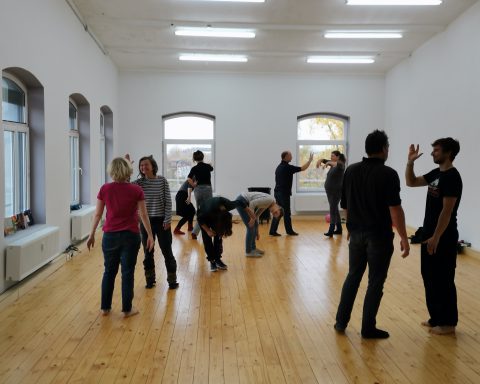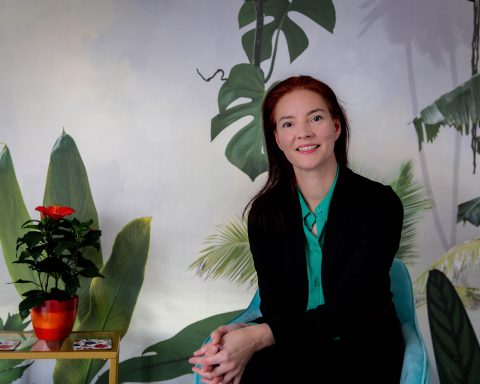Eugen Rosenstock Huessy (1888 – 1973) tried to point out the nature and solutions of many human conflicts. He believed that the answer lay in human communication – we are different from all other animals since we have freedom and responsibility over our actions, coupled with language.

The philosopher wrote in his book Speech and Reality (1970) that “whoever speaks believes in the unity of mankind.” And he believes that the “unity of mankind is not produced by physical or political or economic or racial reasons but by our faith in speech.”
Huessy’s proposal is based on diseases of speech and the possibility to create “healthy” speeches.
He defined four diseases of speech, along with their respective solutions:
(1) WAR:
Not listening to what the foe says (“deafness to the foe”), as opposed to PEACE
(2) CRISIS:
Not telling the friend what to do (“muteness to the friend”), as opposed to TRUST
(3) REVOLUTION:
Inarticulate shouting (“shouting down old articulation”), as opposed to RESPECT
(4) DEGENERATION:
Hypocritical repetition (“stereotyping new life”), as opposed to FREEDOM
I talked about the fascinating issue of how language is evolving across the world (and in my native Brazil) with scholar Nicholas Ostler, former student of Noam Chomsky, the world-renowned linguist. Ostler is one of Chomsky’s pupils producing rigorous, creative, really thought-provoking work as we speak. He is author of Empires of the Word: A Language History of the World (2005); Ad Infinitum: A Biography of Latin (2007); The Last Lingua Franca: English until the Return to Babel (2010); and most recently Passwords to Paradise: How Languages Have Re-invented World Religions (2016).

On the path of Huessy’s reflections, Ostler opened our interview with his personal musings and ideas about the power and importance of language to humankind:
“I do believe a key feature of a language to be its ability to define a community of human beings, namely its speakers.
I am just researching the effects of crossing language boundaries on another community-building human institution – namely religion – and finding that the effect of integrating a new pre-existing community (the foreign language’s own speaker community) is the key effect when a religion spreads. Changes of language often betoken massive changes in a religious community: e.g. the shift from Greek to Latin of Christianity in the 4th century AD is bound up with the Roman Catholic Church changing from a community led by the ideal of martyrdom to one modelled on the Roman Empire itself: a diocese was no longer the domain of a praefectus, but of a bishop!”
Felipe Cherubin: So, what is linguistics?
Nicholas Ostler: Linguistics is defined as the scientific study of language. That leaves it open to various interpretations, because language is present in most fields of human activity. [It] can be analyzed on various dimensions (taking in phonetics, to information structure, to social roles, brain processing, history, geography etc.). And “science” itself can be pursued in so many different ways: experimental, philosophical, logical, statistical etc.
FC: You were a Noam Chomsky student. In your opinion, what are the achievements of Chomsky’s legacy and how has his influence shaped your work?
NO: This is a controversial one. Quot homines tot sententiae, when talking about Chomsky.
I came to Chomsky from a background in Oxford logic and philosophy of language (and more distantly, classical philology). His robust philosophical analysis attracted me; it was historically a response to behaviorism, and was valuable in clearing away the popularity of that view.
It also resisted a kind of unconstructive skepticism about the nature of language which I associated with Oxford philosophy of language, and particularly (perhaps) the late Wittgenstein with his “language games,” which resisted definitive analysis.
However, Chomsky’s popularity, and particularly the groups gathered around him at MIT to develop his technical analysis, created a kind of intellectual and scientific elitism in linguistics which alienated many good people in the field of linguistics, who wanted to pursue other approaches to language, but were told they were un-scientific.
Most specifically, his claim that all human languages would evince certain key properties which made it learnable meant that there was no need to look at the full range of human languages (inductively) to ground generalizations: It would suffice to look at familiar languages (e.g. English, and those of Europe).
This led to a conflict between linguistic typology (which stressed the essential relevance of knowing the full range of human languages) and Chomsky’s school.
Curiously, although brain science – supporting the understanding of how language is learnt – should have been central to Chomsky’s theory, in practice it was not: the empirical results, such as they were, did not back up his theory’s prima facie predictions. So his disciples fell back on ever more sophisticated, philosophical bases for their theories, tending to make them less falsifiable.
Chomsky’s dismissal of behaviorism also had unfortunate global effects. The field work tradition of respect and study of unknown (and even well-known) languages had been strong since the early 20th century. It was associated in the USA (for quite arbitrary, historical reasons – notably the ascendancy of Leonard Bloomfield) with behaviorism, and hence tended to be smeared by Chomsky’s dismissal of the latter; this had an effect beyond the USA in making field work research unpopular.
The growth of concern for endangered languages since (say) 1992 can be seen as a reaction to this. But it has been claimed that the ascendancy of Chomsky’s theories meant that linguists’ attention worldwide was distracted from the documentation of language at just the moment when a majority of them were ceasing to be transmitted to the next generation – i.e. precisely when field work would have been most beneficial in terms of aiding language survival.
From my own point of view, I am sure that I have benefited from the intellectual rigor of MIT linguistics as it was taught in my day (late 1970s); and of course, MIT would never have been a centre for linguistics without the presence of Chomsky (and other significant linguists gathered by Morris Halle: Ken Hale, Paul Kiparsky, Joan Bresnan, David Perlmutter – to list the few who were particularly inspiring for me). I am at ease with the development and defense of theories, and the wish to make claims concrete, which I probably should not have gained in quite the same way elsewhere.
This has underlain my published analyses of parts of the grammar of South American languages, such as the extinct language Chibcha, and the indigenous language Uwa, in Colombia. That is also why – say in Empires of the Word, or The Last Lingua Franca – I try to look for distinct stories and generalizations amid the otherwise rather indeterminate facts of social history of languages.

FC: What are the fundamental differences between mother tongue and lingua franca?
NO: The former is learnt naturally, and unconsciously; [while] the latter is learnt deliberately, and usually for a conscious purpose. People who learn a lingua franca already have acquired another language as a mother tongue. It is a paradox of human language that some languages (such as English, par excellence) can have both these statuses at the same time (for different people): and of course, mother-tongue English and lingua-franca English are mutually intelligible.
FC: Are there radical differences between human language and communication expressions of other animals?
NO: Every feature of human language is notoriously present in some other animal communication – but not all of them at once in some animal communication (e.g. most plausibly, dolphin clicks or whale song). It was also suggested to me once that one feature of human language (grammatical relations – such as agent, patient, theme, instrument, time, place) are not in any animal communication.
FC: Is there a relation between language and affectivity in general? It is not uncommon that someone who speaks a lingua franca finds it difficult to communicate their deep feelings in a dialogue, and in moments of great emotion speaks in their mother tongue instead, in a scenery that demands a lingua franca. So, can the lingua franca’s pragmatism “brutalize” human sensibility and empathy, or even deform basic reality apprehension?

NO: An interesting question. I am inclined to think you are right.
Exceptional individuals can emote in deliberately learnt languages. I am immediately reminded of the Roman poet Ennius, the first serious epic poet in that language: yet he had learnt it in the Roman Army. Joseph Conrad, the noted English novelist (1857-1924), did not speak the language fluently until he was in his twenties (and always with a marked accent).
Possibly, the difficulty for the average individual who has acquired a lingua franca lies in the degree of exposure they have to it, and perhaps too the time. People may acquire the ability to be detached with age. On p. 294 of Ad Infinitum, in a footnote, I alluded to Spitzer, who believed that people find it difficult to emote in Latin, having learnt it later in life than in childhood. Hence the relative insignificance of late Latin literature, written by people who have learnt it at school.
Quite recently, there is an example of this close to home for me. The Argentinian student Facundo Saravia is writing original verse in the extinct language Chibcha of Colombia, which he has learnt from grammar books and analyses. See the article (by him and me) in Ogmios 51.

FC: Many languages have survived via writing technologies and spread at large scale via the Gutenberg revolution and migrations. What is the role of power, religion, science and technologies in front of what you called “Empires of the Word?”
NO: Well, language pervades all human activities. It is so universal as a fact that I find it difficult to say anything more specific. What is interesting is that some empires do not spread their home languages – e.g. Persian on the Achaemenian Empire, Dutch in the East Indies (Nederlands-Indië), Turkish in the Ottoman Empire, or indeed Chagatatay Turkic in the Mughal Empire.
Sometimes it is easier to stick with another, pre-established, lingua franca.
FC: Translation is a very old technique. Do you really believe that the fantastic improvements in computer translation can put us in a “Return to Babel?” The biblical account of Babel does not have a kind of happy end, since human beings had put their faith in kind of crazy project. What is your expectation regarding this “Return?”

NO: That return is evidently the trend of our language technology, though it is going to take a bit longer to get there.
The Tower of Babel has as many morals as you care to give it (human arrogance punished, human diversity applauded, Jewish resentment of Babylon). But why stick to that myth? The Acoma goddess Iyatiku gave language diversity so that people would not quarrel with each other so much.
My supposed “Return to Babel” is expressed by the last sentence of The Last Lingua Franca:
“All will speak as they want. And the world will understand.” That is where we are headed, in my opinion.

FC: How has Portuguese survived in history, and what do you see as the future prospects for this language?
NO: Just a note: “History” often refers to the past (except when politicians or others claim to be “making history” – which seems to be more future-oriented).
Portuguese had only a small role in Brazil, until the mining discoveries of the 17th to 18th centuries caused a flood of immigration from Portugal. Before that, the unifying language, if there was one, was Tupi / Nheengatu, aka “lingua geral,” although probably not in the coastal cities. Probably Portuguese supplanted that language thereafter, infiltrating the inland communities which had been created through use of the “lingua geral.” Since it had been deliberately abolished along with the Jesuits who had made such good use of it, it was evidently not taken up by the Portuguese immigrants, who were rough, and aiming to assert themselves over the indigenous people.
Portuguese, I imagine, will continue, like other major lingua francas – and I note that Portuguese in Brazil has made the transition from lingua franca to mother tongue – like languages in other settlement colonies in North America, but unlike Portuguese in the exploitation colonies of Africa (and trading colonies of the Indies). In the terms of The Last Lingua Franca, it has regenerated itself, and is now a major global language, though preponderantly in Brazil rather than its motherland of Portugal.
That is all I have to say about it at present. It is interesting to speculate about the possible return of languages which seem to have been extinguished in history. We are seeing such things with Welsh and Cornish near here in the UK, and Hawaiian and Maori in islands on opposite sides of the Pacific Ocean. It is not inconceivable that, if Brazilian society fragments more in the future (and I see it as a VERY big and varied country), some may wish to get back to an indigenous society – using aids like Eduardo de Almeida Navarro’s Método Moderno de Tupi Antigo (2004) and Curso Completo de Tupi Moderno (2011).
I certainly wish Brazil and its peoples all the best, and shall watch developments in your part of the world with interest, in the time remaining to me.
The author of this article, Felipe Cherubin, just published his first novel, “The Man of Two Cities: Shadows of Madness.” Its protagonist, who suffers from depression and bipolar disorder, fights against his own ghosts and shadows, navigating and showing the ups and downs, but always looking for balance. The book is currently available in Portuguese from Amazon, where it has run for a literature prize.









